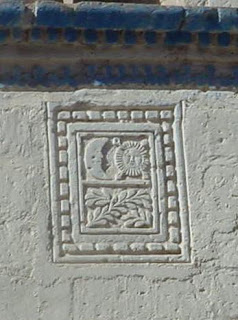North Americans often assume that Hispanic culture inherently is highly religious, but it depends on what one means by “religious.” If by “religious” one means “a follower of Jesus Christ as Lord as He is revealed in Scripture to the exclusion of all other gods or desires,” Hispanics are no more or no less religious than any other people group. Simply put, it is a myth to believe that Hispanics or any other people group as a whole love God because Romans 3:11 explains: There is none who understands, there is none who seeks for God.[1] In fact, I increasingly come into contact with Hispanics who have an animosity toward religion in general and God in particular.
Percentagewise, the majority of Hispanics consider themselves to be Catholic.[2] This does not mean, however, that they faithfully attend a Catholic church. Often, Hispanic Catholicism either is cultural or familial rather than personal in nature. For example, my wife’s grandmother often commented, “I was born Catholic, I will die Catholic” before finally placing her trust in Jesus Christ in the later years of her life. It is not a rare occurrence to speak with people who never attend Mass but consider themselves Catholic because their grandparents or great grandparents were Catholic. Alex Montoya explained that “only a small fraction of Hispanics in [the United States of] America are truly loyal church-going Roman Catholics.”[3]
 |
| Homage to the Incan religion on a church building |
Syncretism also is prevalent within the Hispanic community. Although someone may consider himself to be a Christian, he also may adhere to beliefs that stem from the pre-Colombus indigenous religions of Latin America. Jorge Lara-Braud referred to this blended religion as “Christo-paganism” or “folk-Catholicism.”[4] The response of the Incas in the Andes Mountains of South America to the teachings of Spanish priests half a millennium ago is an excellent illustration.
The Incas “seemed to accept the teaching of the missionaries fairly readily but, in reality, they did not reject their previous beliefs to accept the news ones. Rather, they syncretised them, or layered them on top of their existing beliefs . . . . . they have blended the identities of the Catholic saints with their own apus . . . “principal mountain gods” and wak’as . . . “sacred places.” . . . . The Virgin Mary herself came to be associated with Pachamama, the Earth Mother, the greatest of all female deities.[5]
The same phenomenon occurred throughout Latin America, so a person who ministers to Hispanics must be aware of the issue.
Another example of this practice occurs in the highlands of Guatemala. In Santiago Atitlán, the Mayan-Catholic inhabitants pay homage to Maximón, the patron saint of merchants, travelers, and witchcraft. They offer his effigy money, cigars, and alcohol to appease the vengeful entity. Maximón originally was the Mayan god Mam (“grandfather”), but worshipers “Christianized” the deity when priests introduced them to Catholicism.
 Many Hispanics who refer to themselves as Christians have combined the message of the Bible with traditional religious beliefs and as a result hold aberrant views concerning core doctrinal issues issues such as the identity of Jesus, the sinfulness of mankind, and the means of salvation. The length of this article prevents a detailed discussion of the numerous religions which any given Hispanic might endorse, but one should not be surprised to find virtually any set of religious tenets espoused by some members of the people group. Simply put, all Hispanics are not devout Roman Catholics who loyally attend Mass.
Many Hispanics who refer to themselves as Christians have combined the message of the Bible with traditional religious beliefs and as a result hold aberrant views concerning core doctrinal issues issues such as the identity of Jesus, the sinfulness of mankind, and the means of salvation. The length of this article prevents a detailed discussion of the numerous religions which any given Hispanic might endorse, but one should not be surprised to find virtually any set of religious tenets espoused by some members of the people group. Simply put, all Hispanics are not devout Roman Catholics who loyally attend Mass. When sharing the Gospel, the presenter must do so in such a way that the hearer clearly understands the message of Jesus Christ. Leading questions such as “Are you a Christian?” or “Would you like to have eternal life?” likely will receive an affirmative answer whether or not the listener comprehends the true meaning of the inquiries. Years ago, I shared the Gospel with a Guatemalan who expressed an interest in repenting of his sins and trusting in Jesus as his Lord. When, however, I challenged him to forsake his gods, saints, and Mary, and cling only to Jesus, he looked at me strangely and walked away at a hurried pace. We must be aware that not everyone who claims the name of Christ is a believer (Matt. 7:21) and clearly communicate the exclusivity of a relationship with Jesus (John 14:6).
[1] New American Standard Bible, Updated edition.
[2] However, the belief that all Hispanics are Catholic is untrue. The percentage of Hispanics who are non-Catholic evangelicals has been increasing in both Latin America and the United States for quite some time. Cf. Samuel Escobar, “Migration: Avenue and Challenge to Mission,” Missiology: An International Review 31:1 (Jan. 2003): 23.
[3] Alex Montoya, Hispanic Ministry in North America (Grand Rapids: Zondervan, 1987), 19.
[4] Jorge Lara-Braud, “Our Spanish-American Neighbors,” The Christian Century 85:2 (1968): 43.
[5] Serafin M. Coronel-Molina, Quechua Phrasebook (Victoria, Australia: Lonely Planet Publications, 2002), 60-61.

No comments:
Post a Comment